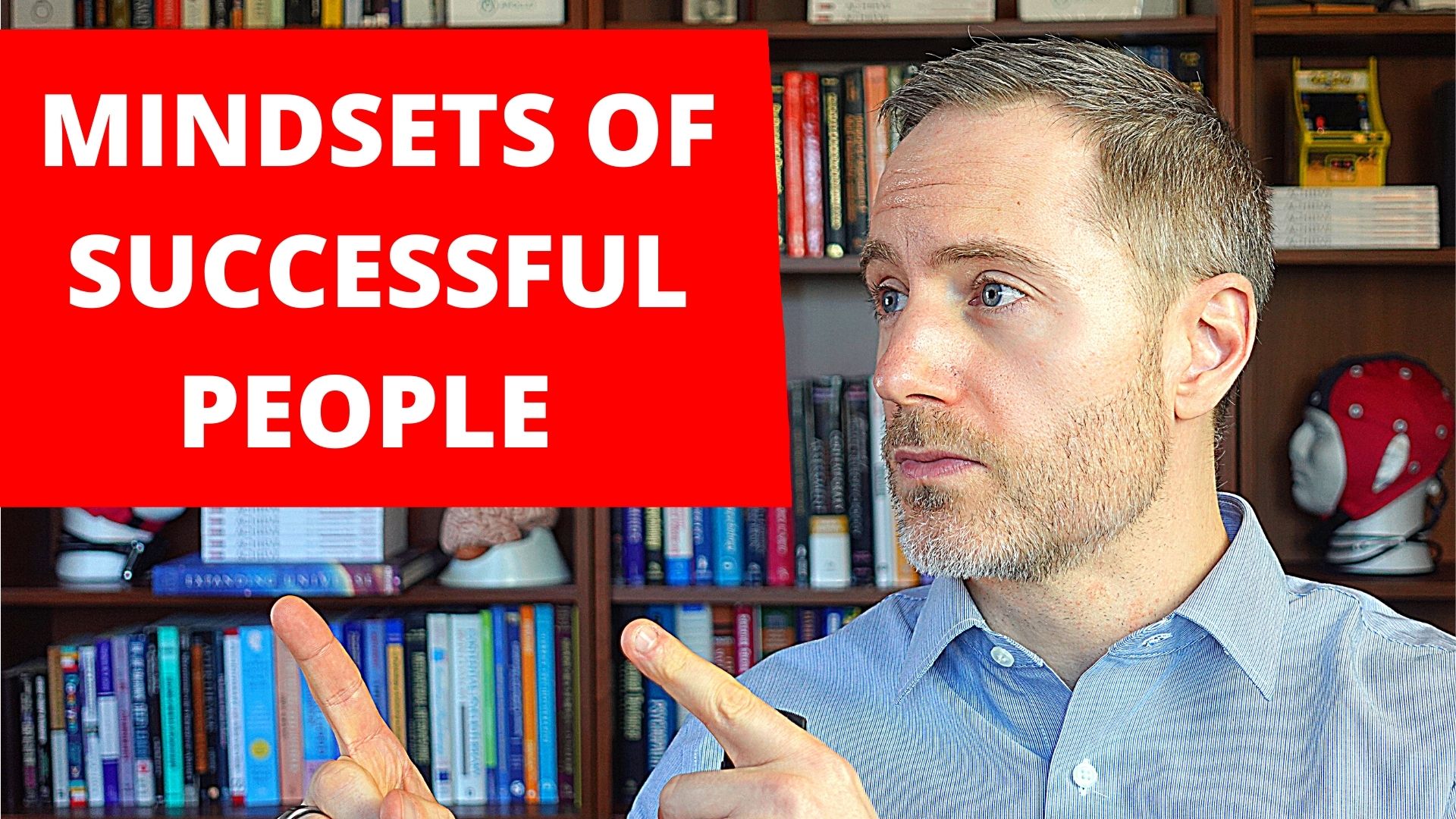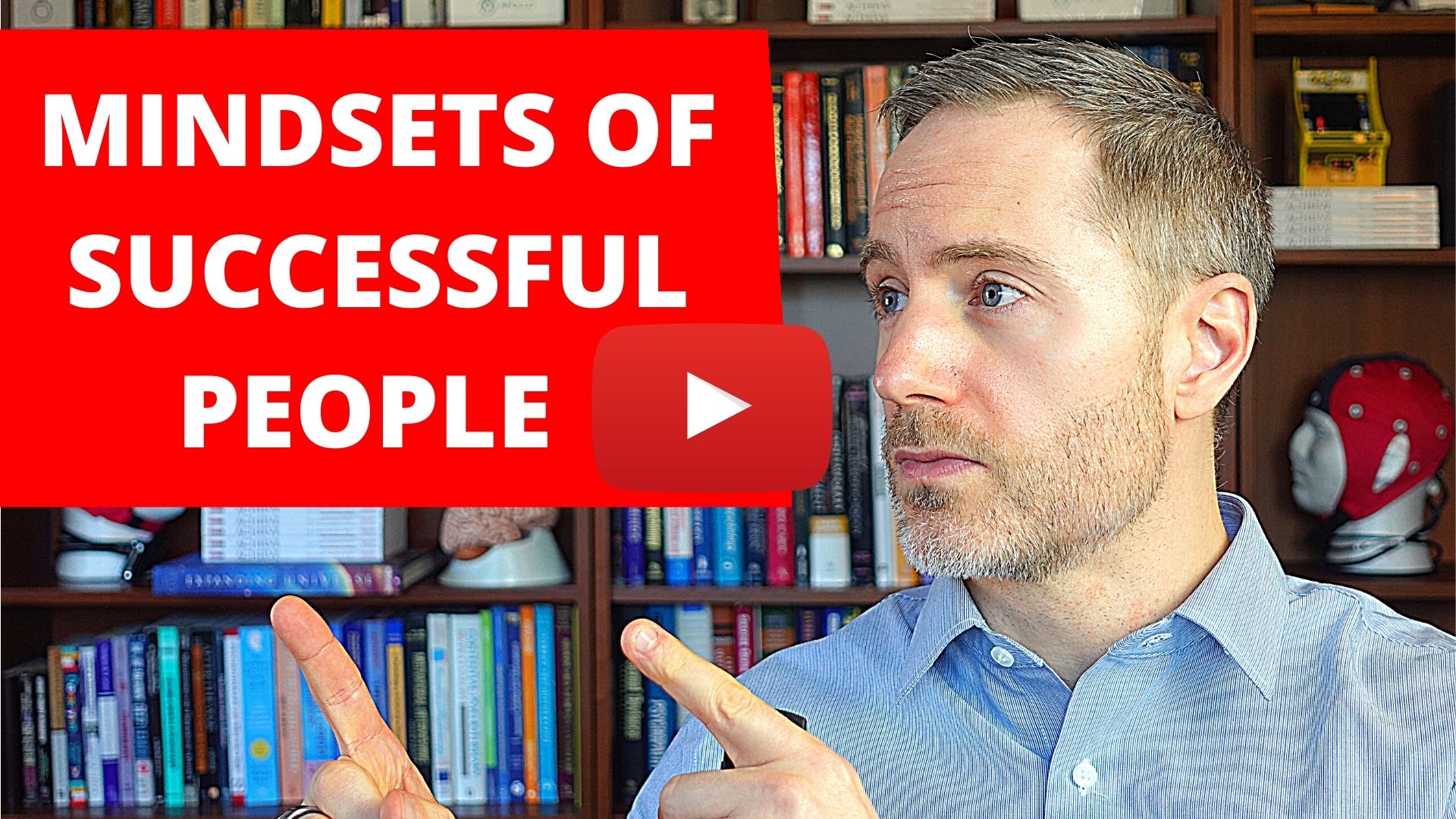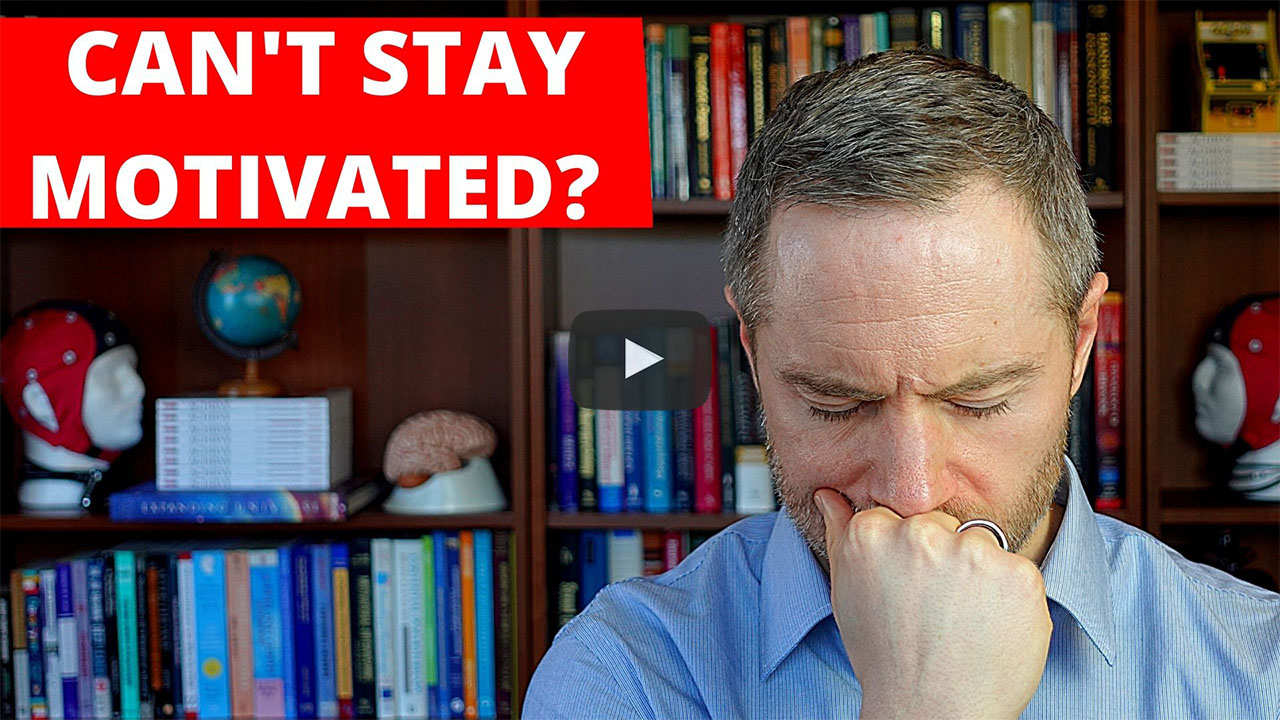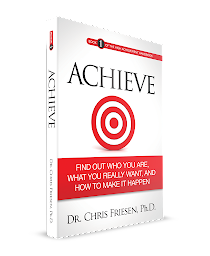Most self-help gurus have it wrong.
They tend to give generic advice that assumes we’re all the same. We aren’t, and we have decades of science to back this up. One of the keys to your happiness and success is in your knowledge of these differences.
How Susceptibility to Negative Emotions Affects Success
The truth is, we all differ when it comes to our personalities. Our personalities are molded by a combination of our genes and our unique life experiences. I refer to these as our Basic Personality Tendencies. Our proclivities toward acting, thinking, and feeling in certain ways.
Our Basic Tendencies
One of the most important Basic Personality Tendencies is what I term Susceptibility to Negative Emotions & Stress. This concept distinguishes between those of us who are more prone to worry, doubt, and feeling tense, irritable, stressed, anxious, and moody, with those who are calm, patient, content, and rarely affected by stress.
If you want to be successful, you need to determine whether you’re on the high or low side of the Negative Emotions equation.
This isn’t just psychobabble.
Where we fall on this continuum is reflected physically in our brains. It’s related to the neurotransmitter serotonin and the activity in areas of our brain sensitive to threat and punishment.
It’s a part of our prefrontal cortex located behind our foreheads, and the amygdala, which is a set of structures deeper within our brains.
How long or how intensely negative emotions affect us in part depends on differences within the prefrontal cortex. A “stronger” prefrontal cortex can inhibit or calm down the negative emotions generated by our amygdala.
We’ve all been there.
When our emotions run too high, we can’t think straight and usually underperform. This is referred to as the “amygdala hijack” and happens when your prefrontal cortex is not able to suppress the negative emotions produced by your amygdala.
 How to Deal With Negative Thoughts
How to Deal With Negative Thoughts
Learn to tolerate and accept your negative emotions.
Usually, being high on Negative Emotions puts people at risk for failure when it comes to achieving big and ambitious goals. This outcome is a result of having a hard time handling the inevitable stress and feelings of inadequacy and anxiety when things don’t go as planned.
The reality is, the more you fight against your emotions, the stronger they will become. The key is to learn to tolerate and accept your negative emotions through brain-training exercises like regular mindfulness meditation and practicing staying in the present moment throughout your day. In fact mindfulness meditation, when practiced regularly, can actually strengthen, and even increase the thickness of, the prefrontal cortex. So doing this will reduce the chance you’ll fall victim to the amygdala hijack.
Tap into your passion!
Most people think that being high on Negative Emotions is a bad thing. This is far from the truth. For example, high Negative Emotions is a hallmark of many successful artists and top performers.
Tapping into your negative emotions is often helpful to spark creativity and create works of art. Most successful novelists, screenwriters, and actors capitalize on their high levels of Negative Emotions to help them feel empathy for and create believable characters.
Many professional athletes tap into the psychic and physical energy these emotions produce to unleash their best performances. So make no mistake, negative emotions can be your friend by helping you produce amazing performances and creativity.
Reinterpret your negative emotions.
When in a performance situation, like when pitching to investors or about to compete on the world stage, perceiving your “nerves” as a sign that you’re “afraid” or you’re going to “choke” under the pressure is going to wreak havoc on your performance.
Instead, reinterpret the physiological signs of negative emotions.
Take your sweaty palms, racing heart, or tense muscles as signals that you’re “pumped”, “amped”, and “ready to go”.
Interpreting your “nerves” this way will help you harness the energy that only these emotions can provide. So the next time you’re in a high-pressure or performance situation, welcome your “nerves” with open arms.
Say to yourself, “glad you could join me, my friend … now let’s do this!”
Be aware of how your high levels of Negative Emotions influence the types of goals you’re likely set for yourself.
You’ll be prone to making what Columbia University psychologist Heidi Halvorson refers to as prevention-focused goals. In other words, you’re probably not big on taking risks when it comes to setting goals and many of your goals may be based on preventing negative things from happening.
This is because your brain is hardwired to be sensitive to threat and punishment. The good news is you can use this knowledge to motivate yourself by trying to think of all the negative things that will happen if you don’t reach a goal or take action.
But when you‘re more focused on trying not to lose and maintaining what you already have, big achievements will rarely happen. The trick is to become more aware of when you’re doing this and go against your grain by making more ambitious goals and then tolerating and accepting any negative emotions that result.
In other words, you’re probably not big on taking risks when it comes to setting goals and many of your goals may be based on preventing negative things from happening. This is because your brain is hardwired to be sensitive to threat and punishment.
The good news is you can use this knowledge to motivate yourself by trying to think of all the negative things that will happen if you don’t reach a goal or take action.
But when you‘re more focused on trying not to lose and maintaining what you already have, big achievements will rarely happen. The trick is to become more aware of when you’re doing this and go against your grain by making more ambitious goals and then tolerating and accepting any negative emotions that result.
Now you may be asking, what about if you’re low on Basic Personality Tendency of Negative Emotions?
How to Enhance The Quality of Your Life If You Don’t Exhibit Basic Negative Tendencies
Appreciate the fact that you can have an advantage when it comes to achieving your goals!
Experiencing fewer negative emotions gives you a lot more leeway in the face of stress that you will inevitably face when trying to succeed. In other words, you’re likely naturally calm under pressure, pretty content with life, and have little difficulty dealing with the inevitable stresses and setbacks you’ll face when trying to achieve your goals. You’ll do well in pursuits that are high-stress and those where keeping emotions in check are Capitalize on this!
Work hard on empathizing with others.
All successful relationships require that we feel understood. And to be successful, we will inevitably need the help of others. At times, being naturally low on Negative Emotions can lead to problems with empathy. It may also leave the impression that you’re indifferent to the feelings of others. If you rarely experience negative emotions, it can be hard to understand what it feels like for others to have these feelings. Or to predict how your actions may cause negative emotions in those around you.
So you’ll need to work hard to try to understand things from others’ perspectives if you want to achieve big goals. As Pelé so famously noted, “No individual can win a game by himself.”
Work to prime yourself in order to perform at your best in high-pressure or performance situations.
Despite the common conception that being relaxed is the key to top performance, having very low levels of emotional activation can actually hinder performance. For most situations, having a moderate level of emotional activation leads to better performance. So you may need to psych yourself up when it’s go-time!
Be sure you don’t underestimate the risks and all the hard work involved in achieving your goals.
If you’re also high on the Basic Personality Tendency of Extraversion (e.g., outgoing, energetic, attracted to excitement and stimulation, and quick to feel positive emotions), you’ll likely be prone to make more of what Halvorson calls promotion-focused goals.
Personality psychologists call this being sensitive to rewards and insensitive to punishment. This means you’re more likely to easily come up with big and risky goals and not sweat the small stuff.
You can motivate yourself by thinking of the big payoffs and all the other great things you’ll experience when you achieve your goals. But appreciating the risks and all the hard work involved in achieving these goals may be harder for you. So make sure you really think about the risks involved and what it will really take, day-in-and-day-out to achieve your goals.
As you can see, being high or low on the Basic Personality Tendency of Negative Emotions is neither good nor bad when it comes to your success.
But knowledge is power. Knowing where you stand on this personality tendency and what to do about it is essential to your success. So embrace who you are and achieve what you were meant to achieve!
Knowing where you stand on this personality tendency and what to do about it is essential to your success. So embrace who you are and achieve what you were meant to achieve!
 Our Philosophy
Our Philosophy



 How to Deal With Negative Thoughts
How to Deal With Negative Thoughts











